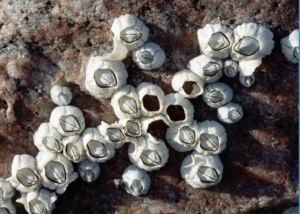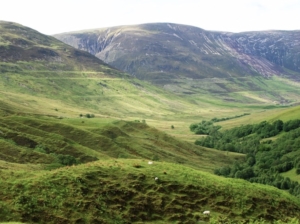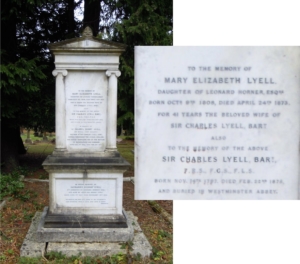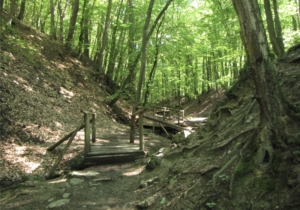Mary Lyell (née Horner)
Conchologist and Geologist
Image from Ancestry.co.uk
- BORN 19th October 1808, Pancras, Middlesex, England
- DIED 24th April 1873, Middlesex, England
- WORKED Various locations in the Highlands of Scotland and geologically interesting parts of England; Central Europe, including the Rhine and Rhone valleys, Switzerland and northern Italy; Denmark, Sweden and Norway; many different parts of North America including Mississippi, Ohio, Georgia, New England and Nova Scotia; Madeira and the Canary Islands
- HONOURS Mary’s life was largely eclipsed by that of her husband, Sir Charles Lyell. Before their marriage in 1832, he had already become a Professor of Geology at King’s College, London, a Fellow of the Royal Society, and a published scientific author. In 1848, he was knighted. Mary was spoken of very highly by several learned figures, but her only honour came long after her death, when in 1991, a crater on the planet Venus was named ‘Horner’ after her.
Entry by Catherine Booth
Artistic Connections
Mary was an accomplished linguist, and could speak French, German, Dutch, Spanish and Swedish. She was able both to converse with, and write letters to, literary figures, and almost certainly had read widely. She is also said to have been able to sketch geological features and specimens.
Music
Title: TrowelBlazers – Time & Tide & Tectonics
Composer: FRANCES M LYNCH
Words by: Frances M Lynch
Written in: 2017
For: female voice
Commissioned: for Lyme Regis Fossil Festival 2017 for schools to sing with the Raising Horizons Exhibition
Performed by: Frances M Lynch (all sung voices), Speeches by geologists Prof. Kathy Whaler and Lara Kalnins
World Premiere: 29th April, 2017, Lyme Regis Fossil Festival
TrowelBlazers was set up by an inspirational group of women to celebrate women archaeologists, palaeontologists and geologists who have been doing awesome work for far longer, and in far greater numbers, than most people realise. In 2017 we were approached by Lyme Regis Fossil Festival to create a workshop and performance celebrating TrowelBlazers’ Raising Horizons Exhibition. This tribute to them features only three of the many women whose work they celebrate – CHARLOTTE MURCHISON, Mary Lyell, MARIA OGILVIE GORDON – with others featured including Rosemary Strachan Hutton and Alicia Ann Spottiswoode (Lady John Scott).
The words include this quote from Rachel Carson (1907 – 1964) Marine Biologist, Ecologist:-
“On every out-thrust headland, on every curving beach, in every grain of sand, there is a story of the earth”
Education
Mary was one of six daughters of educational reformer and geologist, Leonard Horner (1785-1864). He was born in Edinburgh, where he also attended both school and university, subsequently moving to London. He hired tutors to ensure that all his children were well-educated as they were growing up. Mary continued to educate herself throughout her life, learning languages, and, at one stage, receiving instruction in conchology (shells) alongside her husband, Charles Lyell.

Barnacles. Once past the larval stage, they develop a shell, attach themselves to a surface, and thereafter cannot move
(Image from oceana.org)
Occupations
Conchologist
Mary built up a collection of shells, and had a thorough knowledge of them, and was a specialist in mollusc shells. She also collected barnacles which she sent to Charles Darwin
Geological Assistant
Charles Lyell had very poor eyesight, so Mary was the person he relied upon to help him source and catalogue specimens, write geological papers and prepare lectures
Scientific Traveller
Charles and Mary spent much of their married life at Charles’s family home at Kinnordy, near Kirriemuir, Scotland, but Mary also often accompanied her husband on his field trips. Her modes of travel included horseback, canoe, and stagecoach, as well as on foot in wild and undeveloped localities. She and Charles probably saw more of North America during their travels than almost any American living then would have seen
Scientific Achievements

The ‘parallel roads’ of Glen Roy, Lochaber, Scotland, mentioned in a letter from Charles Darwin to Mary Lyell in 1847
(Image from scottishgeology.com (CC BY-NC))
Charles Lyell is said to have commented that a wife of a scientist is likely to merge her work with that of her husband and pass it off as his, and it is possible that these words described his own situation! Certainly Mary Lyell’s work is almost all undocumented, though there exists an extensive collection of letters to and from her, mostly unpublished. A few of these letters are in the public domain, and these inform us that:
- She carried out research into snails in 1854 while in the Canary Islands
- Darwin appreciated the barnacles she supplied, and in his letter of thanks to her in 1847, he demonstrated that he knew she would understand his description of geographic examples of glaciation. These included the ‘parallel roads’ in Glen Roy in the Scottish Highlands, believed to be the shorelines of ancient glacial lakes
- Among the specimens of her husband’s fossils which she catalogued were 36 boxes of fossil shells they brought back from America in 1842
- She corresponded comfortably, and often on scientific topics, with other scientists and with their wives, including Gideon Mantell (1790-1852),Thomas Henry Huxley (1825-1895), and both Louis Agassiz (1807-1873) and his second wife Elizabeth (1822-1907) who was a naturalist
Other evidence of the attributes of Mary Lyell has to be from the words of other people, such as in the following tribute published after her death in the Boston Daily Advertiser:
“Her marriage with an eminent man of science gave a scientific turn to her thoughts and studies, and she became to her husband not merely the truest of friends and the most affectionate and sympathising of companions, but a very efficient helper. She was frank, generous, and true; her moral instincts were high and pure; she was faithful and firm in friendship; she was fearless in the expression of opinion without being aggressive; and she had that force of character and quiet energy of temperament that gave her the power to do all that she had resolved to do.”
Did You Know?
- Mary and Charles Lyell were married in Germany, and for their honeymoon, he took her off on a geological trip to Germany, Switzerland and Italy
- Mary Lyell took an interest in what you could call ‘geological politics’. In 1873, the Chair of Geology at Cambridge University became vacant. Mary became campaign manager for her favourite candidate, Thomas McKenny Hughes (1832-1917), Survey Officer at the Geological Survey. He succeeded, and remained in the post for 44 years. Sadly, Mary died shortly after his appointment.
- Charles Lyell, although an excellent geologist, was said to be a poor lecturer. He was hesitant, had a soft voice and often rambled. He could also be stiff and aloof in social situations, while Mary had a warm personality. This was particularly noticed in their American travels, where Mary won the hearts of many people she met. The tribute published after her death in the Boston Daily Advertiser, says: “There are many hearts in the United States that will be saddened by the death of this admirable woman… In every part of it [she] had made warm and lasting friends… Strength and sweetness were hers, both in no common measure…”
- Mary’s sister Katharine married Charles Lyell’s brother, Henry

Lyell family grave in Brookwood Cemetery, Surrey, England
(Image from wikimedia commons, user: Jack1956 [CC0])
An Inspiring Woman
Despite the lack of evidence nowadays of her achievements, Mary Lyell was not entirely self-effacing. There are several instances where she stood up for better recognition for women, such as:
- In 1833, she was one of the active advocates for women to be allowed to attend lectures at King’s College, London. Charles Lyell consented to this, and found his lectures attended by around 250 people, over half of them being women
- In 1870 she attended a meeting of the members and supporters of the National Society for Women’s Suffrage which was addressed by Millicent Fawcett, and also attended by Millicent’s sister, Elizabeth Garrett Anderson
In 1871, the Council for the Society of Arts set up a Committee to promote the better education of girls of all classes. A central Committee would sit in London, with branches in as many areas of the country as possible. Mary Lyell was one of a number of women who volunteered to be on this Committee


